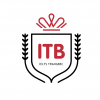Topic Writing mới toanh hỏi cuối tháng 9 vừa rồi lại tiếp tục hỏi về chủ đề báo chí cực phổ biến.
Some people think that newspapers are the best way to learn news. However, others believe that they can learn news better through other media. Discuss both views and give your opinion? - Một số người nghĩ rằng báo chí là cách tốt nhất để tìm hiểu tin tức. Tuy nhiên, những người khác tin rằng họ có thể tìm hiểu tin tức tốt hơn thông qua các phương tiện truyền thông khác. Thảo luận cả hai quan điểm và đưa ra ý kiến của bạn?
Đây không phải là topic khó đã được hỏi từ năm 2019 rồi tuy nhiên những bạn chưa có từ vựng chắc về báo chí hay các phương tiện truyền thông khác sẽ gặp khó khăn viết. Để giúp các bạn làm thật tốt topic này cùng IELTS Trangbec học content thật tốt bên dưới!
1. Broadsheet (n) /ˈbrɔːd.ʃiːt/: a newspaper that is printed on large sheets of paper, or an advertisement printed on a large sheet of paper: báo khổ lớn
Example: In Britain, the broadsheets are generally believed to be more serious than the tabloids.
2. The gutter press (n) /ˌɡʌt.ə ˈpres/: the type of newspapers that pay more attention to shocking stories about crime and sex than to serious matters: báo đăng nhiều tin giật gân
3. Tabloid (n) /ˈtæb·lɔɪd/: a type of newspaper that has smaller pages, many pictures, and short reports: báo lá cải
Example: The tabloids often attract readers with sensational headlines.
4. Periodical (n) /ˌpɪə.riˈɒd.ɪ.kəl/: a magazine or newspaper, especially on a serious subject, that is published regularly: tạp chí định kì
Example: She has written for several legal periodicals.
5. Supplementary newspaper (a) /ˌsʌp.lɪˈmen.tər.i/: a magazine which sometimes is given free with a newspaper: bản phụ lục (báo)
6. Local/regional newspaper = a newspaper which contains news from a particular area: báo địa phương
National newspaper = a newspaper which contains news from the whole country.
7. Headline (n) /ˈhed.laɪn/: a line of words printed in large letters as the title of a story in a newspaper, or the main points of the news that are broadcast on television or radio: tiêu đề
Example: the eight o'clock headlines
8. Front-page headline (a) /ˌfrʌntˈpeɪdʒ/: tiêu đề trang nhất
Example: The scandal was the front-page headline in all the newspaper.
9. Columnist (n) /ˈkɒl.əm.nɪst/: someone who writes a regular article for a newspaper or magazine
Example: a gossip/sports columnist
10. Advice columnist (n) /ədˈvaɪs ˌkɒl.əm.nɪst/: a person who gives advice to people with personal problems in articles that appear regularly in a magazine or newspaper or on a website
Example: I wrote a letter to the New York Daily News advice columnist.
11. Journalist (n) /ˈdʒɜː.nə.lɪst/: a person who writes news stories or articles for a newspaper or magazine or broadcasts them on radio or television:
Example: a freelance political journalist
12. Editorial (n) /ˌed.ɪˈtɔː.ri.əl/: an article in a newspaper that expresses the editor's opinion on a subject of particular interest at the present time:
Example: All the papers deal with the same subject in their editorials.
13. Editor (n) /ˈed.ɪ.tər/: a person who corrects or changes pieces of text or films before they are printed or shown, or a person who is in charge of a newspaper or magazine
Example: She’s a senior editor in the reference department of a publishing company.
14. Readership (n) /ˈriː.də.ʃɪp/: the group of people who regularly read a particular newspaper, magazine, etc.:
Example: The magazine has a readership of over 250,000.
15. Fast checkers = a person who checks if the newspaper facts and information in an article are correct.
16. Censorship (n) /ˈsen.sə.ʃɪp/: the action of preventing part or the whole of a book, film, work of art, document, or other kind of communication from being seen or made available to the public, because it is considered to be offensive or harmful, or because it contains information that someone wishes to keep secret, often for political reasons
Example: censorship of the press
17. Sensational (a) /senˈseɪ.ʃən.əl/: Sensational news reports and articles are intended to be shocking and exciting rather than serious:
Example: Some of the more sensational newspapers have given a lot of coverage to the scandal.
Like và Follow fanpage BEC English Centre để update thêm các từ vựng và Sample mẫu HOT nhất trong IELTS!
Tham gia ngay cộng đồng IELTS SPEAKING tại BEC : https://bitly.vn/1vby để cập nhật các bài học cũng như đề thi IELTS mới nhất từ cộng đồng các bạn học viên của BEC.
Chúc các bạn ôn tập thật tốt!

.jpg&w=760&h=400)